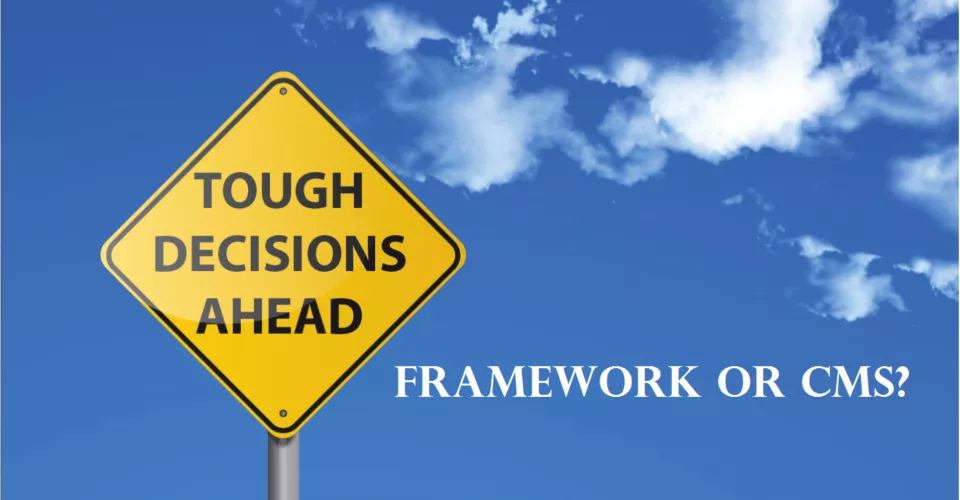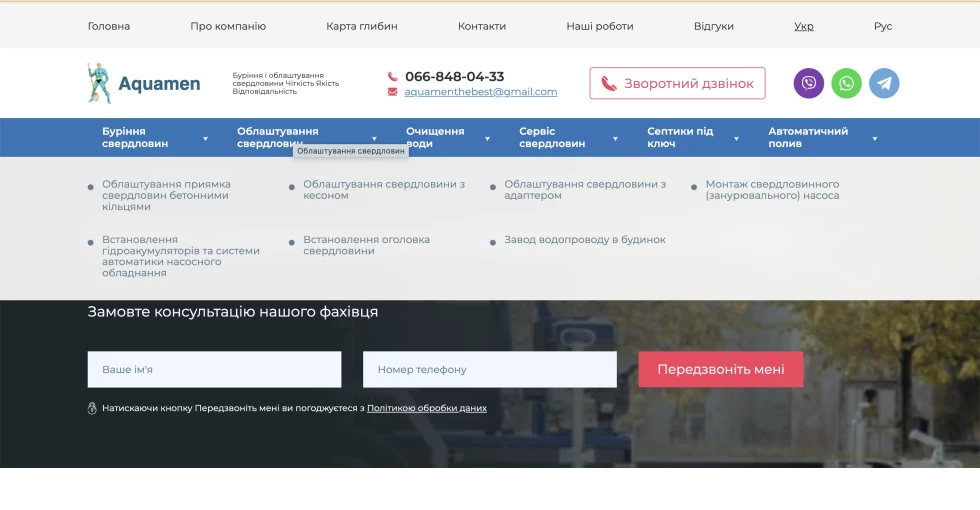Where do web projects live?
The article describes why a web project needs a server, what it is, and how to choose the right one.

CRM System Replatforming for Financial Consultants
More about the serviceCRM System Development
We provide a full range of services for the development and support of online stores, informational websites, CRM/ERP systems, and SEO optimization — from creating technical specifications and prototyping to configuration, launch, and ensuring the quality and stability of your product.
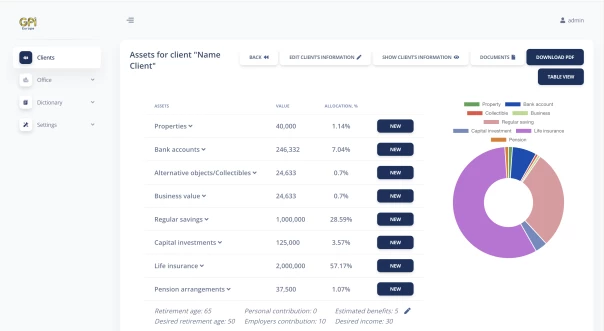
Development and Support of ERP for a Tank Washing and Repair Depot
More about the serviceERP System Development
We develop custom ERP systems — comprehensive solutions for automating and integrating key business processes (finance management, HR, production, supply chain, sales, and more). We provide a full cycle of services: needs analysis and technical specification development, architecture design, system development and integration with existing solutions, implementation with staff training, as well as technical support and regular updates.
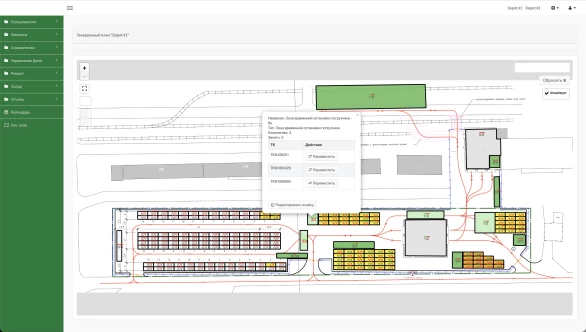
Online stores for beauty professionals.
More about the serviceOnline Store Development
Online store development is a comprehensive process of creating an e‑commerce platform tailored to all client requirements — from preparing technical specifications, prototyping, and design to implementing the website and admin panel, testing, content integration, and ongoing support. This ensures a convenient UX for customers and seamless store operation.

Development of an SEO-optimized informational website for a well drilling company.
More about the serviceDevelopment of informational websites
The development of an informational website is essential for those who aim to showcase their activities online and attract new clients: a modern business card website allows for flexible content updates through an admin panel, displays news and links to social media, and is optimized for search engines, retaining existing audiences and increasing brand trust.
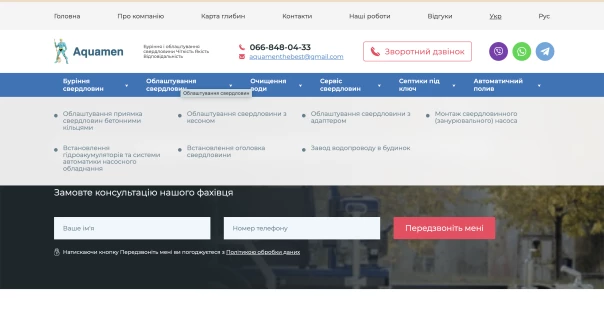
SEO website promotion — boosting visibility and attracting clients from search
We help businesses receive a stable flow of clients from Google. SEO promotion is not just about keywords, but a comprehensive set of work — from technical optimization and content to analytics and link-building.
We create business websites for companies of any size
We develop modern business websites that help present your company, attract new clients, and increase brand trust. These can be landing pages, corporate websites, or multi-page portals with additional functionality.

Content creation — texts, visuals, and videos for your business
We combine the power of artificial intelligence with the expertise of our copywriters, designers, and video editors. We create texts, visuals, and videos that help your brand look professional, communicate effectively, and attract customers.
We create convenient business card websites for companies of any scale
We develop business card websites that help quickly present services, increase recognition, and attract clients. Such websites are ideal for specialists, small companies, or brands that require a compact yet professional online presence.

Content management — professional content creation and support for your website
We take care of all tasks related to content creation, updates, and website structure. Content management is a set of services that includes adding texts, photos, products, news, SEO elements, and keeping your website up to date.

Server administration — stable performance, security, and productivity for your business
We provide full technical server administration to ensure your websites and services run reliably 24/7. Our team has been working for years with Hetzner — one of the most reliable European data centers. We know how to properly configure, optimize, and maintain the infrastructure for your project.
We create intelligent chatbots for Telegram, Viber, WhatsApp, and websites
We develop chatbots that automate customer communication, sales, and technical support. Bots help respond faster, collect requests, accept payments, and operate 24/7 without days off.

Screenshot of the warehouse management module
View Case
ERP system for managing a tank container cleaning and repair station, built on Symfony and deployed on Linux Ubuntu with MySQL for reliability and scalability. The solution includes an administrative panel and a client portal with 49 modules for managing clients, orders, finances, calendar, inventory, and reporting, with capabilities for automatic PDF invoice generation, notifications, and data export to accounting software for complete business process digitalization.

Homepage of the website, VIP announcements block
View Case
A platform for posting announcements in the agricultural sector, connecting farmers, suppliers, and buyers to streamline the buying and selling of agricultural goods and services with increased market transparency and reduced search costs. The system includes an admin panel for moderating announcements, managing content, and analytics, as well as a seller's personal account with the ability to publish and manage announcements and transaction history.

Homepage of the website, VIP announcements block
View Case
A CRM system for a financial consulting company, developed as a custom solution instead of a SaaS product to automate document management and enhance client interaction through admin and client interfaces, with capabilities to manage assets, users, calendars, and dictionaries, generate PDF reports, and synchronize events with Outlook. The project is built on Symfony with PHP 8.3, deployed on Ubuntu 22.04 with a MySQL 8.0 database to ensure system reliability, security, and scalability.

Main Menu of the Project
View Case
Informational website Aquamen for water well drilling services, built with a user‑friendly admin panel for managing users, content blocks, and a feedback module. It supports SEO features (automatic sitemap, no‑index/no‑follow) and sends notifications about new requests via a Telegram bot.

Home Page, Main Menu
View Case
Online store for beauty professionals, developed on Symfony 6.4 and PHP 8.3, deployed on an Ubuntu 22.04 server with a MySQL 8.0 database. It features an intuitive client interface with a product catalog, shopping cart, and order checkout, along with a powerful admin panel for managing products, categories, brands, users, orders, and SEO optimization. The system supports data export and automatic generation of PDF invoices and reports.

Website Home Page, Users, Finance, Learning
View Case
CRM system for a foreign language school designed to efficiently manage student relationships: it enables storing and structuring personal data, course history, and communication records, while automating registration, payment, and class scheduling processes through three key modules — Users, Finance, and Learning.
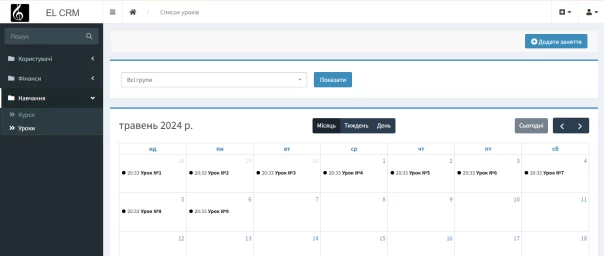
Website Home Page, Users, Finance, Learning
View Case
A custom CRM system for a service business in the truck detailing industry. The solution enables centralized management of clients, services, orders, payments, and staff, automates payroll calculations, and provides detailed business analytics.

Website Home Page, Users, Finance, Learning
View Case
A Telegram bot with an administrative panel was developed for the client, allowing for the automation of order intake, product catalog management, and request processing without operator involvement. The solution is designed for fast customer service and easy management for the business.

Website Home Page, Users, Finance, Learning
View Case
Development of a closed B2B portal with user authorization, structured content categories, and a knowledge management system. The platform allows clients to access technical documentation, downloadable files, news, products, and related materials through a personal account.

Website Home Page, Users, Finance, Learning
View Case
A ready-made solution for launching an expert business focused on selling services and products. The website structure is adapted for scalable growth, easy content management, and fast project launch.

So you've decided that you need to create a website to develop your business. But how to choose a tool and a developer who will understand you and implement your ideas as accurately as possible?
There are a lot of technologies available today, but it's not easy to figure out which one best suits your needs.
First, you need to define the terms. At the start of the project, any developer will ask you: framework or CMS? Both are designed to help the developer implement your idea, but the difference between them is significant. A framework is a set of tools for developing a website from scratch, while a CMS (Content Management System) is a ready-made solution that requires minimal modifications to meet your requirements.
We will not consider the option of developing a website in a pure programming language, such as PHP, here. If you are offered this option, it usually means that the developer is not a professional.
Frameworks significantly accelerate the development of any project compared to using a "pure" programming language, although "out of the box" does not provide any functionality for the client.
The most famous backend (server) frameworks are the following: Symfony, Laravel, and Yii. Today, they are all very similar in essence, but differ in their internal mechanisms. As a rule, they are used to solve extraordinary tasks in the development of various APIs, as well as in the design of corporate solutions such as CRM (Customer Relationship Management) or ERP (Enterprise Resource Planning), as they provide maximum flexibility, customization, security, and individuality for each project.
There are also frameworks that can be used to develop client applications. Among them are AngularJS, React, VueJS, bootstrap. They help developers not only create attractive interactive website interfaces but also significantly optimize the work of the client side of the website.
Another important aspect of using frameworks is that most of them encourage developers to write good and flexible code, use OOP (object-oriented programming) and design patterns, which greatly simplifies further development and support of the project.
None of this is meant to imply that it's impossible to write incorrect code or make mistakes using a framework, but this method helps reduce the number of incorrect code.
One of the disadvantages of using the framework is the need to spend more time on project development.
In contrast to development with the help of a framework, you can use ready-made solutions based on CMS. The main feature of a CMS is that each of these projects is essentially a complete solution that you only need to deploy on your server, configure through the administrative panel, connect the purchased theme, and as a result, get a ready-made website without the participation of developers.
For example, if you host an OpenCart CMS, you will get a ready made admin panel for your online store with product and order management. If you use Wordpress, you will get a management system for your blog.
The peculiarity of CMS is in the fact that you can buy or find a free theme on the developers' websites that will connect a ready-made "layout" design to the website and provide all the necessary functionality in the admin panel for management.
However, using off-the-shelf solutions has its drawbacks. Among them are the following:
So is a framework better than a CMS, or vice versa? Unfortunately (or luckily), there is no clear answer to this question. When choosing a platform for your future website, you need to take into account the specifics of the task and business process. The only thing that can be said for sure is that you shouldn't blindly trust the advice of your friends and acquaintances, even if your internal processes in the company are similar to those of people who already have a ready-made solution. One little thing can change the entire process of development or platform selection, so we recommend contacting specialists who will provide you with detailed advice. We can give an example with doctors and treatment. You wouldn't take a medicine that your friend takes just because it helped him, would you question the doctor's qualifications if he or she prescribes treatment without conducting examinations and only hears symptoms? Therefore, the situation with choosing a website platform is the same.
We will help you choose the best tool for your needs, advise you and assist you in understanding the importance of a particular aspect of the project, because we are no less interested in your success than you are!
Creation of an informational website, the main purpose of which is to promote the client's services using only SEO optimization.

The article describes why a web project needs a server, what it is, and how to choose the right one.
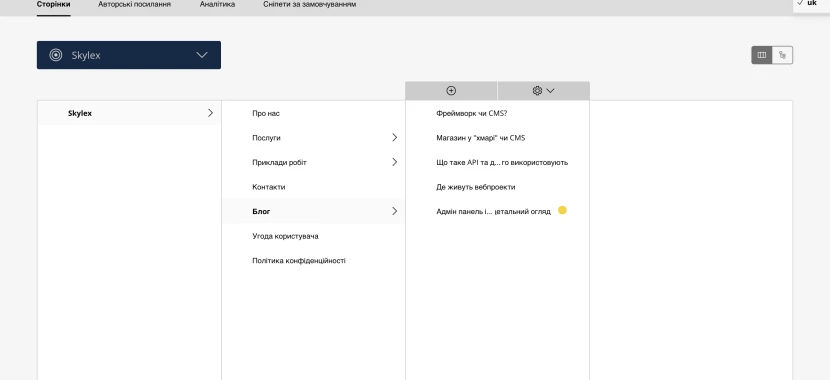
In this article, we show the admin panel of our site, tell how everything works. This article allows you to estimate what you will get after developing an informative website with us.

In this article, you will be able to read a brief overview of the development of a store based on online platforms and CMS. The information in the article will help you choose the right way for you.
Fill out the form to receive a free consultation
